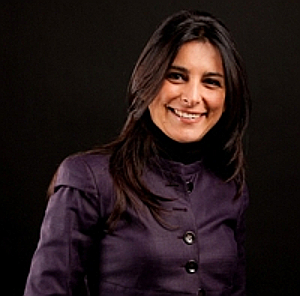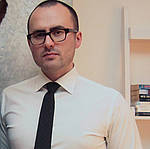
Luxury brands looking towards large multinational companies for top managers
In luxury brand management, experiences are everything. This starts with luxurious shops and attentive sales assistants, involves personalized products and visual icons and leads to creating an exclusive circle of clients that draws customers like moths to the light.
Luxury brands have to develop an entirely different approach to marketing than other products. In an MBA Channel series we have spoken to two leading European business schools about their approach towards the elite industry.Today Paola Cillo, Associate Professor at the Department of Management and Technology at SDA Bocconi in Milan, explains why her university’s track in Luxury Business Management (LBM) within its International MBA offer is a unique option.
A few years ago, no one would have paid much attention to an MBA in Luxury Brand Management. What has changed in the past years?
There has been a growing interest among MBA applicants about the contents related to luxury management. The emergence and dominance of large groups within the industry, not to mention the acquisition of many luxury brands from large investment funds, has called for strong managerial competence. These competences are also becoming more important for those companies that were once managed by families or by people that had moved up to managerial positions through an internal career path.
How does the demand for the degree correlate with the demand for employees by the companies?
From the applicant side, the higher demand is due to the fact that the demand for this type of professionals by companies has significantly increased in the last few years. Indeed, the large groups and investment funds that own the majority of luxury brands have to meet very clear goals set by different stakeholders. Hence, they need high-quality managers that can meet the planned results in a timely manner. This trend is evident also at the senior hiring level, with many top managers being recruited from large multinational companies in FMCG markets because they have the managerial competences that can now be widely exploited in the luxury business.
How quickly do your students find positions after finishing the degree in general?
They usually find opportunities in a short time after graduation, first of all due to the partnerships we have in place with leading luxury groups, currently LVMH and Gucci. In addition, during the summer they have the chance to go through an internship programme, which is a great learning opportunity for the candidate but also for the company hosting the student. Indeed, a good percentage of these internships turn into actual job positions.
What special talents do your students need to bring along? What is the main focus for your admission team?
Our candidates for the Luxury Business Management track must be first admitted to the MBA programme. Upon admission, they go through a second round of interviews, where our admission team evaluate the candidates against various criteria, which have emerged as relevant on the job market. These are - to name the most important ones: past experiences that the candidate might have in luxury industries; soft skills related to flexibility and ability to interact with people with different backgrounds and visions; finally, and most importantly, the passion the candidate shows for any of these contexts, products and brands. We assess their enthusiasm for the luxury context through their statements and during the interview.
How important are multiple languages and if they are, which ones do you recommend?
They are as in every other job. Probably, French might turn out as helpful if working in Paris, where some relevant luxury groups have their headquarters. Therefore, for those who go and work in roles within companies’ headquarters French might be useful. Many of the people in the business are fluent in both English and French, and some of them speak a decent Italian which is helpful for those people whose role requires interaction with manufacturers based in Italy.
Where does your programme differ from/intensify the standard MBA?
Our students take their core courses during the first 7 months of the programme. In May, they officially start the luxury track with an immersion programme that consists of two general courses about luxury industries and a one-week visit to different artisanal labs in jewelry and leather goods and to different companies. After this first part of the training, they take their internship. From September to the end of November they go through two full months of courses where professionals and academic faculty take turns into sharing their own expertise in the most relevant topics and managerial practices that are distinctive of these industries: namely branding, product development and management, retailing, merchandising, and digital strategy and omnichannel. In this respect the programme is intense because the specificities of luxury competences are graft into a solid general management background.
How much demand do you have from international students outside of Europe and how often will students venture into international markets after your degree?
A percentage between 60 to 70 per cent of our applications comes from outside Europe. Our students are eager to develop their professional career in an international context. In addition, for many of our students, starting a career in Italy or France implies being international, as these countries are not their home countries, where they have been raised and educated.

Two careers of two SDA Bocconi graduates
Anton Cherepanov
Manager Business Projects Office at Belstaff
Anton (photo) is a Canadian-Israeli who graduated in 2013. He started as a consultant at Deloitte and moved up to the position of manager before applying to the MBA programme at SDA Bocconi School of Management. While attending the luxury track within the MBA programme, he took up an internship at Labelux and soon after graduation started a graduate rotational programme tailored to him at Jimmy Choo and Belstaff. He is currently responsible for overseeing strategy execution and CRM at Belstaff in London.

Helena KU
WW Merchandiser at FENDI
Helena Ku (photo), MBA graduate of the 2014 class, is a Canadian and former consultant at E&Y before entering the SDA Bocconi MBA programme. During the track, she was selected for an internship at LVMH in Paris and is currently global merchandiser for Fendi. Having Korean heritage she speaks Korean as well as English fluently and can also converse in Spanish and Italian making her an ideal candidate for the European fashion industry reaching out towards Asia as well as the North and South American continents.
